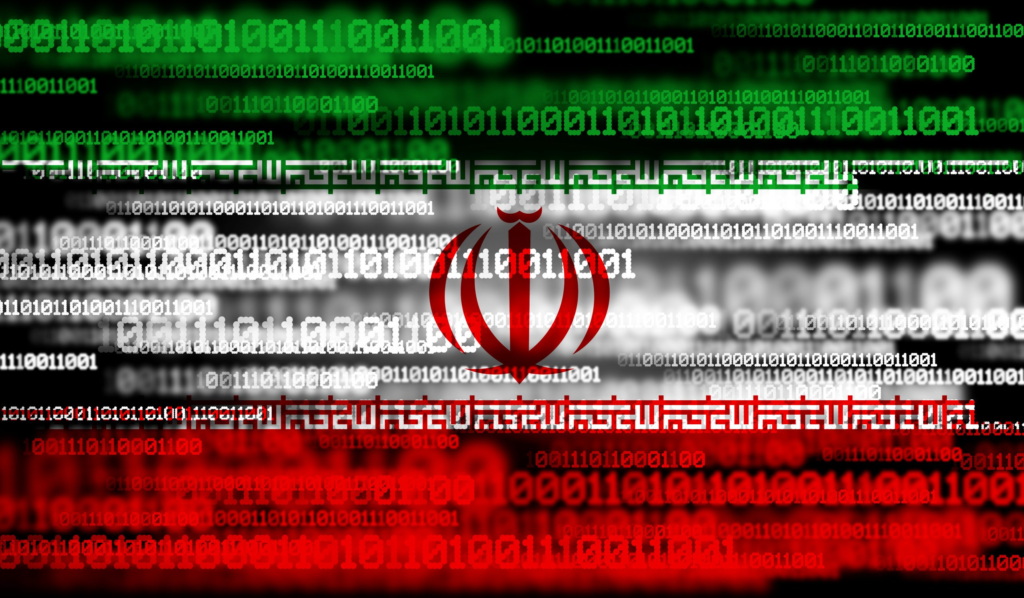Introduction: A New Era of Cyber Warfare
In August 2024, a significant escalation in cyber warfare unfolded when an Iran-backed militant group launched a sophisticated attack against Israel’s Iron Dome missile defense system. This advanced defense mechanism, critical for protecting Israeli cities from incoming missiles, found itself under unprecedented threat. The Iran cyber attack represents a pivotal moment in regional tensions, reflecting the evolving nature of modern warfare. This article delves into the story from the onset of the attack to its implications, providing a comprehensive analysis enriched with expert opinions and a detailed timeline.

Timeline of Events: August 2024
August 1, 2024: Early warnings of a potential cyber-attack emerge from intelligence agencies. Analysts begin to monitor unusual activity linked to Iran-backed groups, particularly those operating from Syrian territory.
August 5, 2024: The first wave of cyber-attacks hits the Iron Dome’s communication networks. The attacks, traced back to a group affiliated with Iran’s Islamic Revolutionary Guard Corps (IRGC), aim to disrupt the system’s radar and tracking capabilities. Israeli cybersecurity teams are immediately activated to contain the breach.
August 7, 2024: Despite initial disruptions, the Iron Dome’s defense mechanisms continue to function. Israeli Prime Minister Benjamin Netanyahu publicly addresses the issue, asserting that the Iron Dome remains operational and that Israel’s cyber defense measures are robust. The IDF (Israel Defense Forces) announces enhanced cybersecurity measures and increased vigilance.
August 9, 2024: Analysis confirms that the cyber-attacks were part of a coordinated strategy intended to weaken Israel’s defensive capabilities. In response, the IDF launches counter-cyber operations aimed at neutralizing the threat and fortifying the Iron Dome’s systems.
August 12, 2024: Israeli officials disclose details about the attackers, identifying them as part of an Iranian-backed faction known for previous cyber-operations. The Israeli government engages with international partners to seek support and strengthen global cybersecurity efforts against similar threats.
August 15, 2024: The United Nations Security Council holds an emergency session to address the regional implications of the cyber-attacks. The session emphasizes the need for international cooperation to combat cyber-terrorism and to ensure the security of defense systems worldwide.
The Attack Unveiled: A Closer Look
The Iron Dome system, which has long been hailed for its effectiveness in intercepting incoming missiles, found itself vulnerable to a new kind of assault. The Iran-backed group employed advanced cyber tactics to compromise the system’s radar and communication networks.
Technical Breakdown of the Attack
The cyber-attack targeted the Iron Dome’s radar and command control systems. By exploiting vulnerabilities in these critical components, the attackers aimed to:
- Disrupt Radar Functionality: The primary goal was to impair the system’s ability to detect and track incoming threats.
- Interfere with Command Communications: Disrupting communication between the radar systems and interception units could delay or prevent successful missile interceptions.
Strategic Motivations Behind the Attack
The motivations behind this cyber-attack are multifaceted:
- Demonstrating Iran’s Influence: By orchestrating this attack, Iran seeks to showcase its ability to challenge Israeli military technology and assert its influence in the region.
- Undermining Regional Security: Weakening the Iron Dome could shift the balance of power in favor of Iran and its proxies, increasing regional instability.
- Strategic Disruption: Disrupting Israel’s defense capabilities may pave the way for further aggressive actions by Iran and its allies.
Expert Opinions: Insights from the Field
To understand the broader implications of the attack, we consulted several experts:
Dr. David Miller, a cybersecurity expert, commented, “The sophistication of this attack underscores the necessity for continuous upgrades to our defense systems. Modern warfare increasingly relies on cyber capabilities, and we must be prepared for these evolving threats.”
Colonel Ruth Ben-David, a former IDF officer, remarked, “The resilience of the Iron Dome, despite the attacks, highlights its critical role in Israeli defense. However, this incident reveals the need for enhanced cyber defenses to safeguard against future threats.”
Dr. Ali Hassan, a Middle Eastern geopolitics analyst, observed, “This attack is part of Iran’s broader strategy to destabilize the region and challenge Israeli military prowess. It reflects a new era in conflict where cyber capabilities play a crucial role.”
Conclusion: Implications and Future Directions
The cyber-attack on Israel’s Iron Dome by an Iran-backed group marks a significant escalation in regional tensions and modern warfare. While the immediate threat was mitigated, the incident highlights the evolving nature of security challenges and the need for enhanced cyber defenses. As Israel continues to strengthen its defensive measures, the international community must also address the broader implications of such attacks and support efforts to combat cyber-terrorism.
For Regular News and Updates Follow – Sentinel eGazette
External Sources
- The Guardian – Evolving Cyber Threats
- Times of India – Iran-Backed Group Targets Israeli Iron Dome
- BBC News – Regional Tensions and Cyber Attacks
FAQs
1. What prompted the August 2024 cyber-attack on Israel’s Iron Dome?
The attack was orchestrated by an Iran-backed group aiming to disrupt Israel’s missile defense capabilities and demonstrate regional power.
2. How did Israel respond to the cyber-attack?
Israel’s defense systems remained operational, and the IDF conducted counter-cyber operations to neutralize the threat and strengthen defenses.
3. What are the implications of this attack for global cybersecurity?
The attack underscores the need for enhanced international cybersecurity cooperation to protect critical infrastructure against evolving threats.
4. Who were the experts consulted on this attack?
Experts like Dr. David Miller, Colonel Ruth Ben-David, and Dr. Ali Hassan provided insights into the attack’s significance and implications.
5. What steps are being taken to prevent future attacks?
Israel is investing in advanced cybersecurity technologies and collaborating with global partners to bolster defenses and address vulnerabilities.